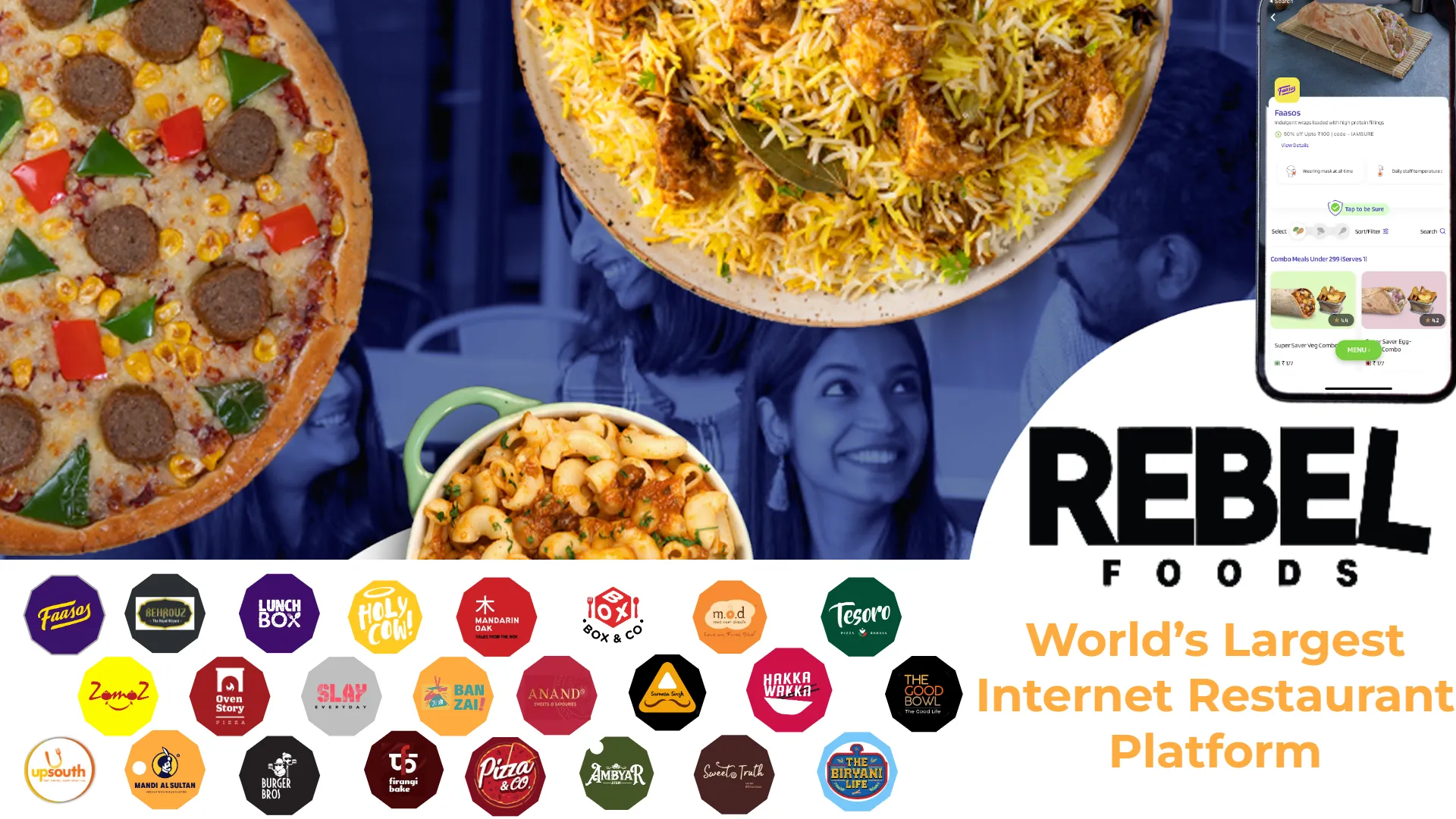In the ever-competitive food industry, where giants like Domino’s dominate, two Indian entrepreneurs—Jaydeep Burman and Kallol Banerjee—achieved what many deemed impossible. Their journey from selling rolls to creating a billion-dollar empire is a masterclass in innovation, branding, and strategic foresight. Here’s how they disrupted the food market within just a few years.
Humble Beginnings: The Birth of Faasos
Jaydeep Burman and Kallol Banerjee launched Faasos in 2011 with a clear vision: to offer affordable, delicious rolls that catered to India’s ever-growing appetite for quick, convenient meals. The brand quickly gained traction, becoming synonymous with wraps and rolls. However, as demand grew, so did their realization: rolls alone would not suffice to satisfy their ambitions. They needed a scalable model that could adapt to changing customer preferences.
The Eureka Moment: Reinventing the Wheel (or Pizza)
Expanding their menu, Burman and Banerjee ventured into pizzas, hoping to replicate the success of their rolls. Unfortunately, the sales figures were underwhelming. This setback, rather than deterring them, became a pivotal learning moment.
Observing global food giants like McDonald’s (burgers), KFC (fried chicken), and Domino’s (pizza), they recognized the power of branding and specialization. A single strong brand with a clear focus could outperform a broad, unfocused offering. Thus, OvenStory was born—a brand solely dedicated to pizzas. This move marked a significant shift in strategy and proved to be a game-changer, with sales soaring under the new brand identity.
The Cloud Kitchen Revolution
Understanding the burgeoning potential of online food delivery platforms like Swiggy and Zomato, Burman and Banerjee pioneered the concept of cloud kitchens in India. Instead of investing in expensive dine-in spaces, they created delivery-only kitchens optimized for producing multiple cuisines under different brand names.
Their innovative cloud kitchen model allowed them to scale rapidly and efficiently. By eliminating the overhead costs associated with physical restaurants, they maximized profits and minimized risks. Faasos evolved into Rebel Foods, the parent company that housed their growing portfolio of brands.
The Birth of a Culinary Empire
Branding and specialization became their mantra. They launched several cuisine-specific brands, each catering to a distinct market segment:
- Behrouz Biryani: Offering premium biryanis with a royal twist, targeting India’s love for this iconic dish.
- Mandarin Oak: Delivering authentic Chinese cuisine.
- Sweet Truth: Focusing on desserts.
- Lunch Box: Providing affordable, wholesome Indian meals.
Each brand operated independently, creating the illusion of competition while being backed by the same infrastructure.
The Secret Sauce: Leveraging Technology
What truly set Burman and Banerjee apart was their reliance on technology. Rebel Foods embraced data analytics to predict trends, optimize delivery routes, and understand customer preferences. Their cloud kitchen model thrived on efficiency, allowing them to experiment with new brands and cuisines without significant risk.
From Vision to Valuation: The Billion-Dollar Dream
In just over a decade, Rebel Foods has grown into a $1.4 billion empire. This success is not just about food—it’s about adapting to market trends, leveraging technology, and understanding the psyche of modern consumers.
Their journey underscores the importance of innovation and adaptability in an industry where consumer preferences change at lightning speed. By prioritizing branding, investing in scalable infrastructure, and focusing on the customer experience, they created a business model that could withstand competition from global giants.
Lessons from the Rebel Foods Playbook
Whether you’re an aspiring entrepreneur or an established business owner, there are plenty of lessons to learn from Burman and Banerjee’s journey:
- Brand Specialization: A clear, focused brand identity resonates more with consumers than a scattered offering.
- Agility in Adversity: Setbacks are opportunities to rethink, innovate, and pivot.
- Leveraging Technology: Use data and technology to drive decisions and optimize operations.
- Think Beyond the Product: They didn’t just sell food—they created experiences and stories around each brand.
The Road Ahead
Rebel Foods’ story is far from over. As they continue to innovate and expand into new markets, their journey serves as a testament to the power of vision, resilience, and strategic thinking.
For anyone venturing into the food industry or any business, the story of Jaydeep Burman and Kallol Banerjee is an inspiring reminder: success doesn’t come from sticking to the script—it comes from rewriting it.
This engaging narrative combines the passion of entrepreneurship with practical insights, making Rebel Foods a brand to watch for years to come. Ride on the wave of innovation, just as they did, and the possibilities are endless!


